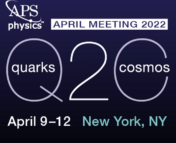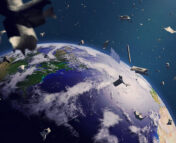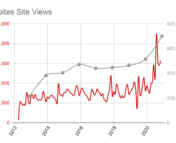Content warning: The following Astrobite will discuss issues pertaining to violence and war.
The mission of Astrobites has always been to make astronomy and related sciences more accessible to students and the general public by communicating about efforts and advances in these fields. Because astronomy is fundamentally a human endeavor, we also aim to highlight the human aspect of astronomy.
Unfortunately, there are unconscionable barriers that impede the lives and aspirations of many colleagues in our field. Some of these have already been discussed explicitly on Astrobites, including systemic racism, sexual harassment, gender bias, and the historical marginalization of Indigenous communities. While we have had reason to celebrate some progress against some of these obstacles to scientists during our years publishing Astrobites, others have sadly grown more severe.
Today, motivated by the ongoing Russian invasion of Ukraine, we want to specifically recognize the enormous impact of violence and war on many members of the astronomy community. No doubt, our readers will be aware of other worldwide tragic conflicts that continue to unfold including the Afghanistan conflict (particularly since 1978), the Israeli-Palestinian conflict (particularly since 2021), the Syrian civil war (particularly since 2011), and the Yemeni civil war (particularly since 2014), to list only a few. Each of these wars involve loss of life at horrendous scales, economic hardship and desperation, devastation of homes and potentially-permanent displacement, and acts of violence, many of which have been categorized as war crimes.
Our colleagues at the American Astronomical Society have recently released a statement regarding events in Ukraine specifically. We strongly support the sentiment expressed there for Ukrainian astronomers to seek support through organizations such as the Institute of International Education (IIE) Scholar Rescue Fund and Ukraine-specific student Emergency Fund, and for others outside of Ukraine to support Ukranians through these and other funds and programs. [The AAS is a supporter of Astrobites, but is not responsible for content published on this site. This post does not represent the view of the AAS.] We also recommend the discussions hosted by the AAAS Center for Science Diplomacy for further reading about how the war in Ukraine affects science and how scientists can mobilize to support Ukraine.
Additionally, we acknowledge that there are many other ongoing global conflicts, only some of which are mentioned above. These conflicts are complex and can take many forms—indeed, as we celebrate Earth Week this week, we note that not only does climate change exacerbate the risk of geopolitical conflict, the inequitable effects of climate change are themselves acts of violence on a global scale. We, as a collective of science writers led by graduate students in astronomy, are limited in our ability to substantively respond to every single one of these complex crises. Yet we have members of our authorship whose lives are immediately affected by global violence. We seek to collectively support those individuals and others in our community touched by the pain and loss brought by violence and war.
While it is not nearly sufficient, here we recognize a few small steps that we as a collaboration will take to help alleviate the harms created by these conflicts:
- We will recognize the personal stress and harm to mental health that these conflicts create, which substantially burden many of our colleagues. We will work to make the Astrobites collaboration and our other academic spaces safer spaces for our colleagues struggling with these burdens.
- We will urge our community members to do what they can to help those afflicted by this violence. That may include contributing philanthropically; providing personal support to a friend, colleague, or stranger; lobbying your government to lend aid or change policies; or volunteering your time and skills to humanitarian organizations. For specific aid organizations and other ways to help, we recommend this recent article by Sigal Samuel in Vox on how to help refugees.
- We welcome feedback from you, Astrobites readers, on what organizations like ours can do to be most effective and supportive to members of our community undergoing the effects of violence. You can contact us at [email protected].
Far too many people around the world lack the peace, safety, and security that should be the basic inalienable right of all humankind. As astronomers, we echo the wish of Carl Sagan: that in recognizing the vastness of the universe and the relative insignificance of the pale blue dot we call home, we recognize our responsibility to each other.
Disclaimer: This post was written after a collaboration-wide decision and is based on the personal views and opinions of Astrobites authors, who are graduate student volunteers. They are not necessarily representative of the views of the American Astronomical Society or other institutions with whom our authors are affiliated.
Featured image credit: Astrobites





Sad but true. Let’s do our best, maybe one day we’ll have a science-friendly world. Some people don’t link science and ethics, but working to create good conditions for scientific education is an honest start